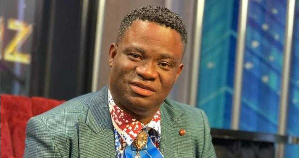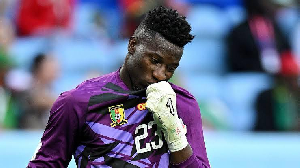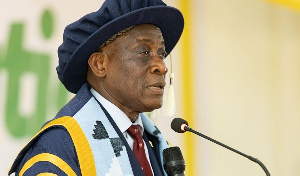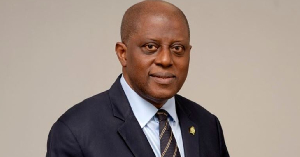General News of Wednesday, 9 May 2018
Source: todaygh.com
Woyome seeks refuge at African Court; accuses Justice Dotse of bias
Businessman Alfred Agbesi Woyome has taken a swipe at Justice Jones Dotse of the Supreme Court of Ghana of being bias and violating his human rights.
He made this accusation yesterday when he opened a case against the State at the African Court on Human and Peoples’ Rights (ACHPR).
The embattled National Democratic Congress (NDC) financier’s lawyers also did not spare some other justices of the Supreme Court, accusing them of same violations.
His lawyer, Osafo Buabeng, told the court that “the case of the applicant is that his rights under the combined effect of articles 2, 3 and 7 of the African Charter have been violated by the decision of the Ghanaian Supreme Court delivered on the 29, July 2014.”
Mr Buabeng said following from an earlier opinion and decision from the review bench, the court cannot be said to have been impartial.
“Because the issue that came before the Supreme Court was a constitutional interpretation so for the learned judge [Justice Dotse] to go beyond the constitutional interpretation and decide that the applicant had no contract with the government and therefore he had no case and had formed an alliance to create loot and share was beyond what was before the business of the Supreme Court.”
According to the lawyer, Justice Doste had formed that prejudiced mind and it was no wonder that within a few weeks, he was able to write a judgement for the review bench.
For him, Justice Dotse had already indicated his disdain for the applicant [his client] and the comments he made during the review were a testament to that fact.
“We contend that the applicant was not given a fair trial. Under Article 12 of the Ghanaian constitution, issues bordering on human rights are to be observed not only by the executive or the legislature but by the judiciary as well.
“We, therefore, find the Supreme Court cannot in our contention be said to have upheld the right of the applicant to a fair trial and was not impartial,” Mr Buabeng added.
The Supreme Court ordered Mr Woyome to refund a total of ?51.2 million wrongly paid to him as judgement debt between 2009 and 2010.
The court ruled that Mr Woyome had no valid contract to be paid that amount of money.
The ruling came after a review of the court’s own earlier decision. Former Attorney General, Martin Amidu, who insisted that Woyome, like Waterville and Isofoton, had no valid contract to be paid any amount by the state in judgement debt, sought the review.
The Supreme Court in 2014 ruled in favour of Mr Amidu and directed Isofoton and Waterville to pay back monies paid them in judgement debt.
It said the contracts, which formed the basis for the claims by the two companies, did not exist in law for want of parliamentary ratification as required by law.
The court said it couldn’t deal with the Woyome matter, which Mr Amidu joined to the two cases because the state was prosecuting Woyome for allegedly obtaining the payments through fraud.
It, however, reviewed that decision upon an application by the former A-G, ordering Woyome to pay back the money – a judgment he has been fighting since.
Deputy Attorney General, Godfred Dame, who is representing the State at the African Court, said Mr Woyome’s application lacked merit.
He told the court that there was an array of remedies available for the resolution of human rights grievances stipulated by Ghana’s constitution, but the applicant failed to make use of any of them.
Mr Dame said if any of Mr Woyome’s human rights were violated by the Supreme Court during its review hearing, local remedies for redress of such grievances should have been evoked through a complaint.
Describing the remedies as effective and efficient, the deputy attorney general said the businessman could have resorted to them since it is a “requirement and an applicant is enjoined to show an attempt of a resort to local remedies.
“And if the applicant on his own did not make any attempt whatsoever for a variety of reasons he himself considers proper then the application ought to be refused.”
“Since Mr Woyome failed to resort to local remedies, his application is irrelevant in the instant case and inadmissible as having being filed unreasonably out of time”, Mr Dame added.
In his view, the applicant had made the case of the court easier by showing that there was a whole procedure for the resolution of human rights grievances set out in the constitution of Ghana.
“Article 33 sets out a whole gamut of procedure and if the person is still unsatisfied with the High Court proceeds to the Court of Appeal and from there to the Supreme Court.
“The matter that was heard in respect of which he complains is not a human right matter, at all. Indeed this is the very first time a human rights grievance of any sort has been raised by the applicant anywhere at all,” Mr Dame explained.
He said all the matters raised by the applicant, which he set out in his statement of case, did not involve human rights violations or allegations of such.
Entertainment

Daddy Lumba wasn't sick for 17 years – Great Ampong
Opinions









